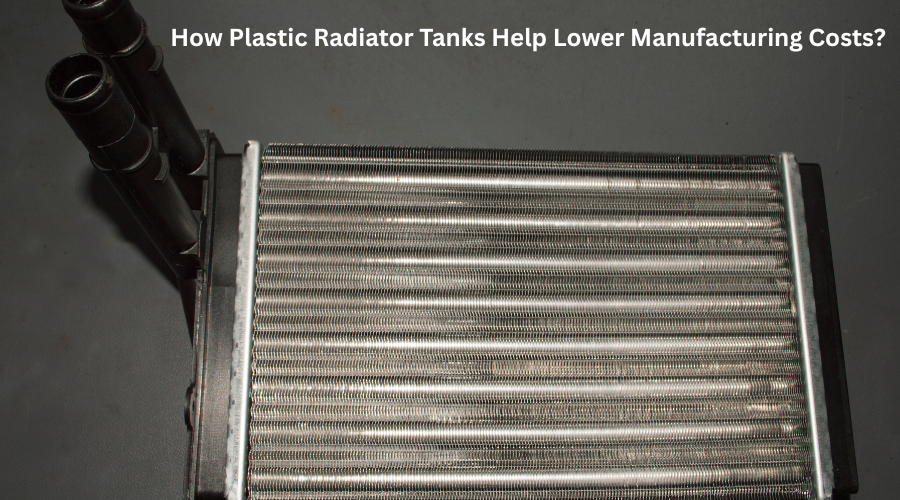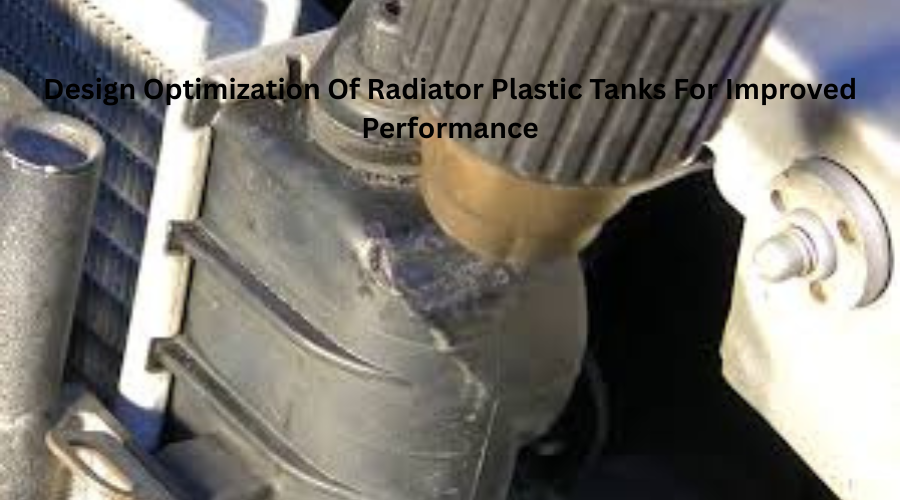The Advantages Of Replacing The Plastic Tank On Your Radiator
- linghangtechnology
- Feb 21
- 4 min read

Your vehicle's cooling system plays an essential part in sustaining engine temperature and preventing overheating. One essential component of this system is the radiator, which helps dissipate excess heat. Many modern radiators come with plastic tanks, which, while cost-effective, tend to degrade over time. If you're experiencing leaks, cracks, or inefficiencies in your radiator, replacing the plastic tank might be the most cost-effective and beneficial solution. To ensure a high-quality replacement, choosing a trusted auto radiator plastic tank manufacturer for durable and reliable parts is essential.
In this article, we'll discuss the key benefits of replacing the plastic tank on your radiator and why it's an investment worth considering.
1. Prevents Costly Repairs and Engine Damage
A failing radiator tank can lead to severe engine overheating, which can cause significant mechanical damage. If your plastic radiator tank cracks or warps, it can lead to coolant leaks and, eventually, engine failure if left unchecked. By replacing the plastic tank in time, you avoid expensive repairs or, worse, the need for a complete engine replacement.
2. Enhances Cooling System Efficiency
A compromised radiator tank affects the entire cooling system's efficiency. Leaks and cracks reduce the coolant's ability to circulate properly, causing the engine to run hotter than it should. By replacing the worn-out plastic tank, you restore optimal coolant flow and heat dissipation, ensuring that your engine operates at its best.
3. Increases the Lifespan of Your Radiator
Instead of replacing the entire radiator, which can be expensive, simply replacing the plastic tank is a cost-effective solution. This not only extends the lifespan of the radiator but also helps you maintain the original cooling system without needing a full overhaul.
4. Reduces the Risk of Coolant Leaks
Coolant leaks can cause serious problems, from engine overheating to environmental hazards. Over time, plastic radiator tanks can become brittle due to exposure to harsh temperatures and constant expansion and contraction. Replacing the tank prevents leaks and ensures that your coolant stays where it belongs—inside the system.

5. Cost-Effective Solution Compared to Full Radiator Replacement
A complete radiator replacement can be expensive, especially for high-end vehicles. However, in many cases, the radiator core remains in good condition while the plastic tank deteriorates. Replacing just the plastic tank saves you hundreds of dollars while restoring full radiator function.
6. Improves Vehicle Performance and Fuel Efficiency
When the radiator operates efficiently, the engine maintains an optimal temperature, reducing strain on other components. An overheating engine can cause power loss, increased fuel consumption, and poor acceleration. Replacing the plastic radiator tank ensures that the cooling system functions properly, contributing to better fuel economy and overall vehicle performance.
7. Eco-Friendly and Sustainable Option
Rather than discarding an entire radiator, replacing only the plastic tank is a more environmentally friendly choice. Manufacturing and disposing of full radiators contribute to metal waste while reusing the existing core and replacing only the worn part minimizes environmental impact.
8. Avoids Unnecessary Downtime and Inconvenience
A leaking radiator tank can cause breakdowns, leaving you stranded. If your vehicle overheats, you may be forced to wait for roadside assistance or arrange for costly emergency repairs. By proactively replacing the plastic tank, you avoid unexpected vehicle downtime and maintain smooth operation.
How to Know When It's Time to Replace Your Radiator's Plastic Tank
If you're unsure whether your radiator's plastic tank needs replacing, watch for these warning signs:
Coolant leaks under the vehicle
Overheating engine or temperature gauge rising too quickly
Low coolant levels even after refilling
Cracks or warping visible on the plastic tank
Steam coming from the radiator
Discolored coolant (rusty or cloudy)
Finding a Reliable Replacement Tank
When replacing your radiator's plastic tank, it's important to choose high-quality parts from a trusted manufacturer. Low-quality replacements can fail prematurely, leading to repeated issues. Ensure that the replacement tank is compatible with your radiator model and made from durable, heat-resistant materials.
FAQs
Q1: Can I replace a plastic radiator tank myself?
Yes, but it requires mechanical skills. The process involves draining the coolant, removing the radiator, detaching the old tank, sealing the new one, and reassembling everything properly.
Q2: How long does a plastic radiator tank last?
On average, a plastic radiator tank lasts 5 to 10 years, depending on driving conditions, coolant quality, and maintenance.
Q3: Is replacing the tank better than replacing the entire radiator?
If the radiator core is in good condition, replacing just the tank is more cost-effective and environmentally friendly.
Q4: What causes a plastic radiator tank to fail?
Extreme heat, constant expansion and contraction, and poor-quality coolant contribute to the breakdown of plastic tanks.
Q5: How much does it cost to replace a plastic radiator tank?
The cost varies based on vehicle make and model, but replacing just the tank is generally significantly cheaper than replacing the entire radiator.
Final Thoughts
Replacing the plastic tank on your radiator is a smart investment that prevents costly repairs, enhances cooling efficiency, and prolongs the durability of your radiator. By addressing the problem early, you can avoid engine damage, reduce vehicle downtime, and even improve fuel efficiency. Always choose a reliable manufacturer for high-quality replacement parts to ensure long-term performance and durability.
If you're experiencing issues with your radiator, now is the perfect time to consider replacing the plastic tank—your engine will thank you for it!






Comments